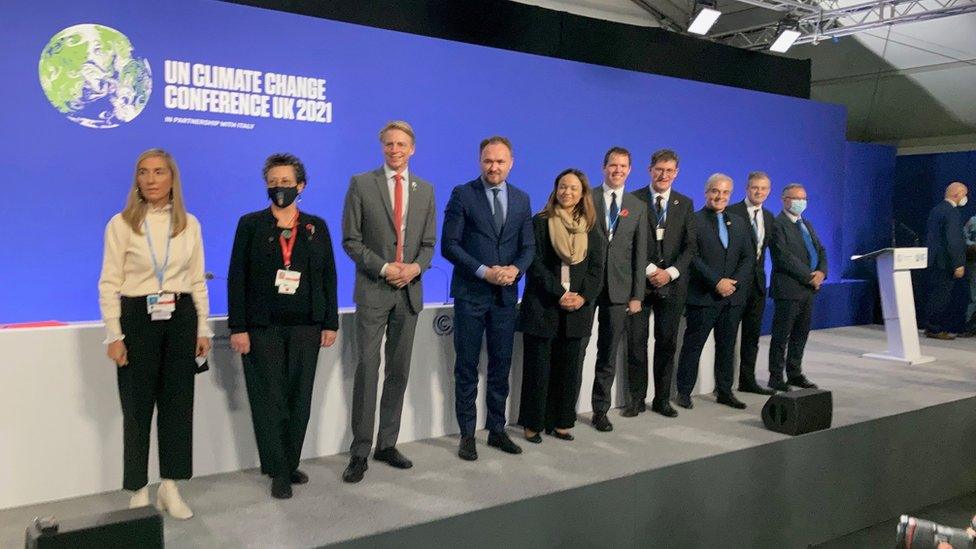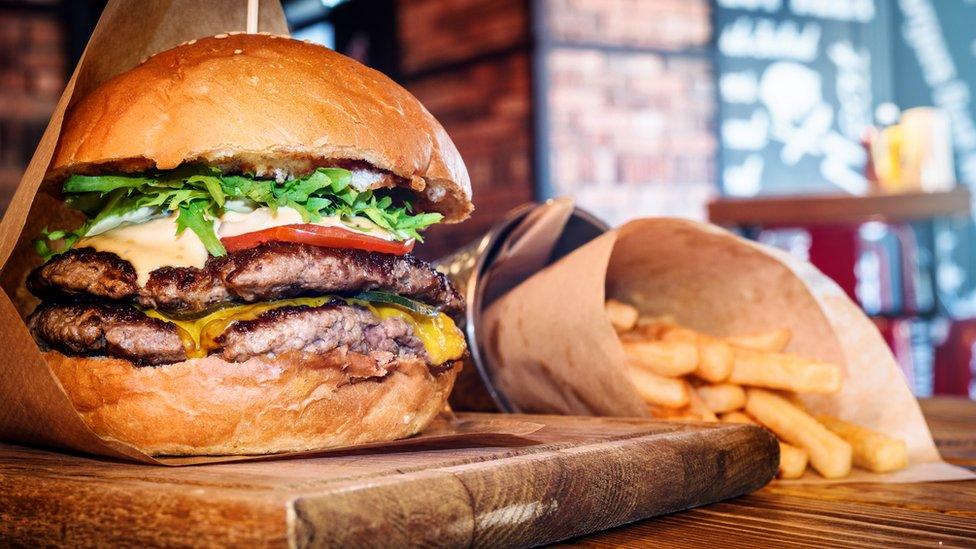COP26: Consequences of not acting profound for Wales, says Lee Waters
- Published
- comments

Lee Waters said Wales "must act" to combat climate change
The consequence of not acting on global warming after the COP26 conference will be "profound" for Wales, the deputy climate change minister has said.
Lee Waters warned the stakes were "very, very high" and the science was "terrifying" as the global climate conference in Glasgow draws to a close.
Delegates from 200 countries have been discussing how to limit global warming.
Before the conference, First Minister Mark Drakeford said it must give a "sense of hope for the future".
Experts in Wales have warned extreme weather events will threaten lives and make people poorer if global warming is not curbed.
Mr Waters said climate change targets would continue to be key in Wales, regardless of the outcome of the conference.
He said: "Achieving net zero [emissions] exists separately, in my view.
"We have to do it regardless of whether COP agrees, and each individual member has his own responsibility.
"Wales has a contribution to make - every person in Wales has a contribution to make, as does the government. We should focus on that because the science is clear and it is terrifying, and we must act."

COP26 climate summit - The basics
Climate change is one of the world's most pressing problems. Governments must promise more ambitious cuts in warming gases if we are to prevent greater global temperature rises.
The summit in Glasgow is where change could happen. You need to watch for the promises made by the world's biggest polluters, like the US and China, and whether poorer countries are getting the support they need.
All our lives will change. Decisions made here could impact our jobs, how we heat our homes, what we eat and how we travel.

He added: "Change will be very difficult for some communities, it is the role of government to help those communities make the change.
"If tackling climate change is seen as a great sacrifice, people are going to be reluctant to do it.
"Our role is to show that it's possible to change, and change can improve things. We can have a better quality of life if we do this in a managed way."
He said he had taken "courage" from the summit to "continue to keep pushing forward and not be distracted by people who are not willing to make the change".
Although there are numerous projections, the most optimistic view is promises made in Glasgow put the world on course for a 1.8C increase in average global temperature.
But this depends on action being taken this decade.
Previous pledges predicted a rise of 2.7C of warming by the end of the century.

Deputy Climate Change Minister Lee Waters (fifth from right) has attended the second half of the COP26 conference
Mr Waters is one of many politicians, campaigners and charities from Wales who have made their way to Scotland for the conference.
Among them are the Youth Climate Ambassadors for Wales, who have been speaking at events, meeting delegates and campaigning.
Shenona Mitra, from Bangor, Gwynedd, said it had been an "intense" experience.
"It'll be really interesting to see after this whether the momentum stays and whether promises turn into actions," she said.
Another of the youth ambassadors, Ellie Sanders, from Swansea, described being at the conference as "an amazing opportunity."
Meanwhile, Leo Carey-Read, from Pontypridd, Rhondda Cynon Taf, said he found COP to be an "eye-opening experience".
He added he felt "hopeful in some senses, but I think I'd be naïve to think that the 26th COP would be the final one", but he "definitely" felt progress had been made.
Young climate activists 'uplifting'
Leading climate change academic, Prof Mary Gagen of Swansea University, said side events involving young climate activists at Glasgow had been "energising".
She said: "It's really uplifting. I'm a climate scientist, one of the generations and generations of us who've been working on climate science since Guy Callendar first discovered human-induced climate change in 1938.
"We need the energy of these sessions to keep working. It's lovely to hear youth activists, indigenous leader from Brazil and Peru, talking about the impact of climate change on their lives and their hopes for the future."



BBC BITESIZE: Sustainability resources
BARGE BASHING AND BICKERING: Explore Welsh canals with Maureen and Gareth
WONDERS OF THE CELTIC DEEP: Encounter mythical coasts and extraordinary creatures

Related topics
- Published7 November 2021

- Published28 October 2021
